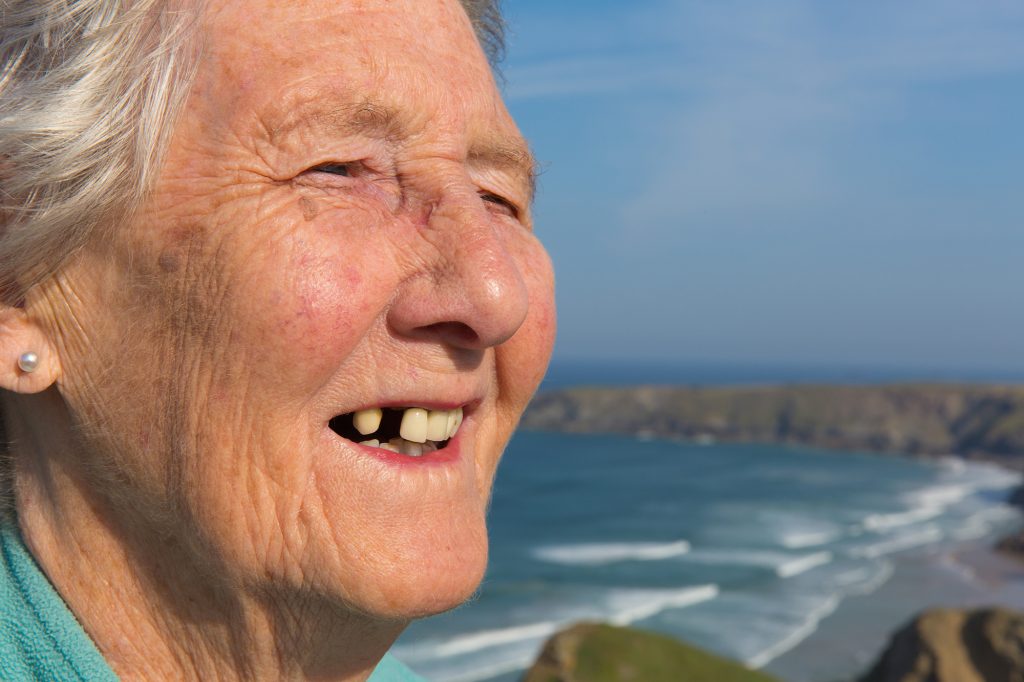Meeting the needs of older patients – Phillip Silver Solvay Dental 360™
Featured Products Promotional FeaturesPosted by: Dental Design 15th February 2019


Ageing is inevitable. It is something that everyone has to come to terms with at some point and we all hope to be happy and healthy in our old age. In recent years, medicine has advanced significantly and people are more knowledgeable about their diet, health and lifestyle. Significant gains in oral health have also been made in the last 30 years and the majority of older people now retain at least some of their natural teeth.2At present there are nearly 12 million people in the UK that are over 65 years old[1]and more than half of them describe their health as good or very good.[2]
Regrettably, it is not all good news as many older adults are likely to experience one or more long term health condition and currently more than half of adults aged 65-74 take prescribed medication.[3]The mouth can be one of the first areas that can become neglected by people with infirmities in old age[4]and maintaining good oral health can be challenging. For instance, carrying out an effective oral hygiene routine can be difficult for those with reduced dexterity, vision or cognition, some people have to rely on help from others can be resistant to care altogether. On top of this, the most common side effect of many prescribed drugs is xerostomia or dry mouth, and with a reduction of saliva and itsnatural anti-microbialproperties there is anincreasing risk of dental decay and oral disease.[5]
Globally, poor oral health in older people is evident at high levels[6]and represents a considerable impact on the quality of life of the elderly. As well as the pain that may result from a dental problem, partial tooth loss remains a significant problem[7]and some individualscan be reluctant to speak, socialise or eat properly, which can pose wider implications on their general health.7
It is predicted that the dental profession is likely to see rising numbers of patients of the ‘heavy metal generation’ (those with some natural but heavily restored teeth) and should be prepared to meet their on-going, high maintenance and treatment needs. As a consequence, dental health professionals need to ensure that their knowledge and skills are continually developed to reflect the growing oral health and dental needs of older people.
One treatment option that is likely to remain popular with older adults is the use of removable partial dentures (RPDs) to replace missing teeth. The technology and materials have advanced significantly in this arena over recent years and along with traditional metal and flexible frameworks, there is now a new generation polymeric option called Ultaire™AKP. This material has been specifically developed for the fabrication of metal-free RPDs; it is strong and offers stable retention but it is also lightweight and biocompatible. Ultaire™AKP enables laboratories to work digitally to create RPDs with increased accuracy for a better fit, improved comfort and superior aesthetics. Furthermore, as the manufacturer of Ultaire™AKP, Solvay Dental 360™also offers professional education to dental professionals to discuss removable partial dentures and the benefits of digitally designed polymer RPD frameworks.
To take advantage of this learning opportunity and expand your knowledge, contact Solvay Dental 360™now.
To book a Solvay Dental 360™ Professional Lunch and Learn or to find more information Ultaire™ AKP and Dentivera™ milling discs,
please visit www.solvaydental360.com

Phillip Silver is the UK Country Manager and Consultant at Solvay Dental 360.™ He is a specialist in medical technologies and materials with over two decades of experience in both implantable and non-implantable devices. Phillip has worked in a range of clinical fields incorporating digital techniques and introducing new and novel technology into restorative dentistry, replacement and reconstructive surgery and facial plastics.
REFERENCES
[1]Office for National Statistics. Population estimates for the UK, England and Wales, Scotland and Northern Ireland: mid2017. file:///Users/pr/Downloads/Population%20estimates%20for%20the%20UK,%20England%20and%20Wales,%20Scotland%20and%20Northern%20Ireland%20mid-2017.pdf[Accessed 24th October 2018]
[2]Public Health England. Oral health of older people in England and Wales. A summary of the oral health surveys of older people in England and Wales to date. 2016.
https://www.gov.uk/government/publications/oral-health-of-older-people-in-england-and-wales
[3]NHS. Almost half of adults take prescription drugs. Dec 2014. Findings from The Health Survey for England 2013. https://www.nhs.uk/news/medication/almost-half-of-all-adults-take-prescription-drugs/[Accessed 24thOctober 2018]
[4]Saunders M.J and Yeh C. Oral health in Elderly people. Chapter 8. http://samples.jbpub.com/9780763782627/9780763782627_CH08_PASS01.pdf
[5]Faculty of Dental Surgery of Royal College of Surgeons. Improving older people’s oral health. file:///Users/pr/Downloads/FDS%20Improving%20older%20peoples%20oral%20health%202017%20(2).pdf[Accessed 24thOctober 2018]
[6]Petersen P.E et al. Improving the oral health of older people: the approach of the WHO Global Oral Health Programme. Community Dentistry and Oral Epidemiology. April 2005; 33(2)81-92. https://onlinelibrary.wiley.com/doi/abs/10.1111/j.1600-0528.2004.00219.x[Accessed 24th October 2018]
[7]Ramsay S.E. et al. Burden of poor oral health in older age: findings from a population-based study of older British men. BMJ Open 2015;5:e009476.
https://bmjopen.bmj.com/content/bmjopen/5/12/e009476.full.pdf [Accessed 24thOctober 2018]
No Comments
No comments yet.
Sorry, the comment form is closed at this time.



